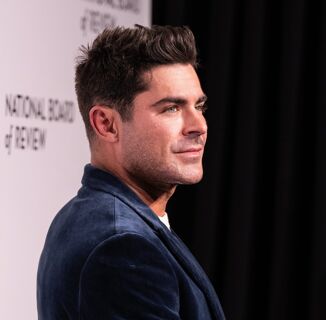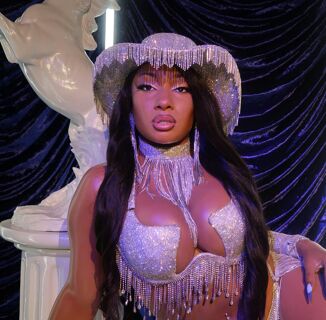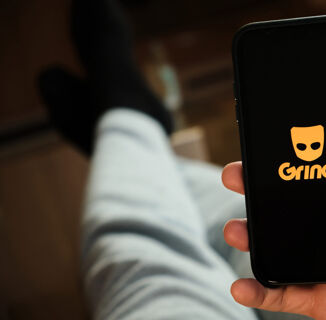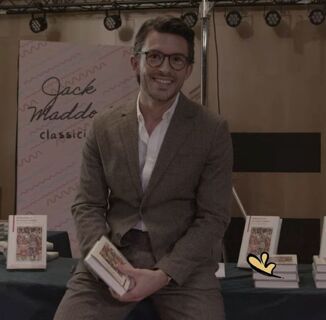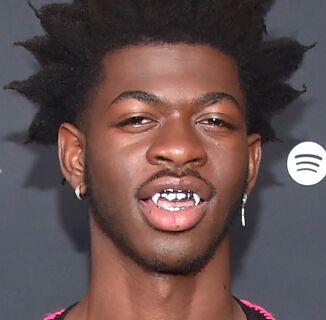If hell is real, I’ve already been there.
In middle school, I had bullies and teachers who laughed at their harsh jokes and taunts. I had “friends” who abandoned me when bullies teamed up. Every day, one of my peers criticized the clothes that I wore, how I spoke, how I looked; they made fun of the darkness of my skin and the fullness of my lips.
My most painful memories are from that time in my life. Once, my teacher turned the lights off and someone shouted “Where’s Arkee?” My teacher joined my classmates in laughing maniacally. And when the teacher realized that her laughter was inappropriate, she attempted to stand up for me by telling him, “You’re one shade darker than Arkee.” That’s when another one of my classmates replied, “Yeah, but he doesn’t dress like a bum like Arkee does, so he’s good.” My teacher had no response; she just turned around and continued the lesson.
I wanted to open the floor and let it swallow me whole. It wasn’t the comment itself that nearly made me cry– it was what my clothing meant to me. Whenever I got ready for school, I saw visions of how my mother struggled to buy me those clothes. I of the holes she had in her sneakers to make sure that my little sister and I did not have any holes in ours. My peers had no idea how much their words hurt me, or maybe they did. Who knows?
In retrospect, I didn’t stand up for myself because I never learned how to. My mother was a devout Christian who believed in the whimsical tales of bullshit in the bible. She believed in “God fighting our battles for us.” However, God didn’t aid me in any fights. If anything, God gave my bullies the ammunition they needed to keep shooting harsh words at me. No amount of prayer kept my bullies away, so I knew I had to take matters into my own hands. But how?
When VH1 aired The Flavor of Love, I found the solution to the problems I endured in school. I know that sounds crazy, but seeing Tiffany Pollard (aka New York) on my TV screen changed me in the most unimaginable way. How? New York gave me something no one else has ever given me: permission to unleash my inner faggot.
I knew the moment I saw New York in her wine-red dress and knee-high boots that she was the true savior I needed. And I was right: New York was — and still is — a breath of fresh air for reality TV. She was the first dark-skinned woman to appear on a dating show twice, losing both times, then received several spin-offs: two seasons of I Love New York and New York Goes to Work. On The Next 15, she checked one of the castmates who made an insensitive joke about there not being enough light skin people on the show. She had the perfect response that truly resonated with me and verified how I felt about her throughout my middle school years: “If you really are a black woman, stand in it in all shades.”
Even today, people evoke memes and GIFs of New York when they want to show their sassy side. She doesn’t just appeal to black women — she appeals to queer people, too. She embodies the confidence many of us need to navigate life. Twelve years later, she is celebrated as reality TV’s biggest star. For me, she’s more than America’s TV biggest star — she’s one of my biggest influences.
She taught me to enjoy my dark skin, and she taught me that it’s okay to be confrontational, even if my previous Christian faith forbade it. People have argued that New York plays into the harmful stereotype that all black women are angry and “ghetto.” I admired New York even more when she addressed her critics by saying, “If you love New York, I’m with you. Fuck you if you don’t.” She is herself unapologetically, and she doesn’t care about how people perceive her. This is how I needed to be. I needed to not be afraid to play into the ugly black and queer stereotypes. I needed to be myself. Tiffany allowed me to do exactly that. I needed to not be afraid to play into the ugly black and queer stereotypes. I needed to be myself. Tiffany allowed me to do exactly that.

After watching the first episode she appeared on, I returned to school and chose to sit in the front of the classroom, closest to the board. This was unusual for me because I preferred the back. I felt invisible in the back — safe from the torment of my bullies, even though I seldom was. The spirit of New York made me feel like I should want to be seen; that’s exactly how she was. She was always in front of the cameras, saying whatever she needed to say — doing whatever was necessary to win Flav’s heart. La La, who hosted the reunion called her “the most controversial member amongst her cast.”
I didn’t associate with any of my peers in the classroom anymore, especially those “friend”’ who giggled when my bullies made harsh jokes about me. The spirit of New York didn’t allow me to. She told me, “You’re not in school to make friends. You’re in school to learn,” just like she didn’t go to Flav’s mansion to make friends — she went there to win Flav’s heart.
My new-found confidence did what I wanted it to do: provoke people and create new bullies for me to stand up to. One day, I convinced my then homophobic mother to let me wear a pink sweater to school. I walked into the school knowing that my hyper-masculine peers would insult me as soon as they saw me, and they did. This time I was prepared. I had the spirit of New York residing in me, and I was not about to take any of their shit.

“Arkee looks like a faggot,” one of my classmates shouted across the classroom, I stood up, flipped my invisible weave, and said, “I am a faggot. And I’ve seen enough gay porn to know that your lips look like a dried-up butthole.” This, of course, set a new precedent for what will happen when my classmates choose to come for me: I’d always have a bitchy response for them, just like queen New York would. By the second episode, I’d told at least 15 people to get a facelift.
After a few weeks, people started to leave me alone. They got annoyed that their jokes no longer hurt me and that my responses always hurt them. I made a transformation that changed my life forever. That would not have happened without New York, a reality TV legend who has used her platform to defend her queer fanbase. On Big Brother, she voted to evict a homophobic castmate, saying, “Winston, I want you to leave and it’s because of your homophobic views. I have a lot of gay friends and fans. I love them dearly and I can’t disagree with that type of hate.”
I wouldn’t say that I turned into a bully. Like New York, I didn’t go of my way to attack people. I simply had the confidence to stand up for myself, something I’ve never had before. When Pumkin accused New York of being a man and called her transphobic slurs, she replied by telling her that she needed to get a facelift. When Hottie spoke about wanting to see New York go home, she replied with her famous motto “New York is in the motherfucking house. And when she believed that Hottie stole her jacket, she told her that she looked less like Beyonce and more like Luther Vandross.

That’s why when my biggest bully made fun of my clothing again, I had the perfect response for him that brought him to tears. That’s why when my homophobic aunt attacked me via text message, I had the perfect response for her that brought her to tears. That’s why I’m able to build a writing career despite my learning disability: because of the new-found confidence Ms. Tiffany New York Pollard gave me.
Help make sure LGBTQ+ stories are being told...
We can't rely on mainstream media to tell our stories. That's why we don't lock our articles behind a paywall. Will you support our mission with a contribution today?
Cancel anytime · Proudly LGBTQ+ owned and operated
Read More in Culture
The Latest on INTO
Subscribe to get a twice-weekly dose of queer news, updates, and insights from the INTO team.
in Your Inbox






